Keeping tradition alive, in hopes to one day return home to Crimea
A map of Crimea is drawn on the blackboard as a teacher educates students on the history of this state. Children, 8 and 9 years old, carefully take notes as some raise their hands to ask questions. This school is a program run by the non-profit, Krymska Rodyna, and hosts lessons every Saturday on all Crimean Tatar traditions. From history lessons to dance lessons, classes are offered to youth starting as early as 4 years old to adults.
Five years ago this month Crimea was occupied by Russia, and conflict broke out in eastern Ukraine, causing 1.5 million persons to be displaced. Many, including Crimean Tatars, fled to major cities, such as Odesa, Lviv, and Kyiv, thus starting new lives.
Anife Kurtseitova, 37, has been an activist fighting for the rights of the Crimean Tatar community. A strong advocate, she has participated in numerous interviews, educating others about her culture, and hosted fundraising campaigns for Crimean children of political prisoners. She decided not to let tragedy determine the fate of her community.
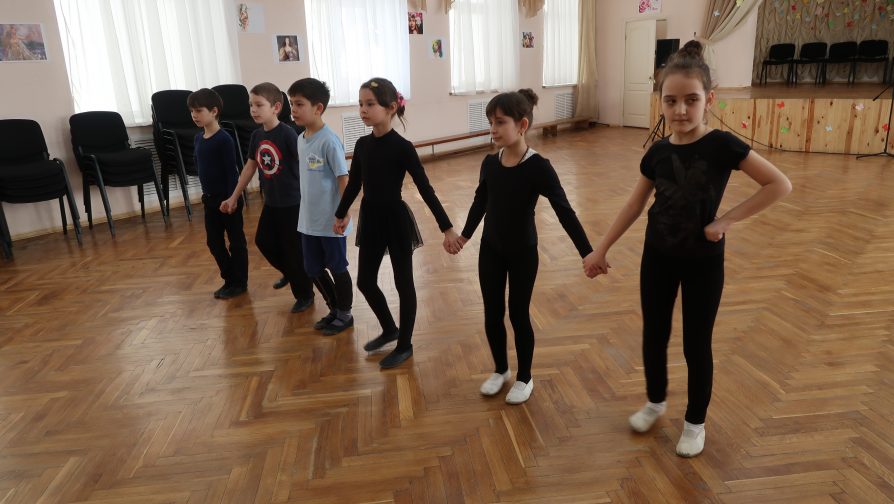
Building an NGO organization after moving to Kyiv, she began a Saturday school program focusing on all things relating to the Tatar culture. While negotiating with the Department of Education , she managed to arrange the permission to use several premises on the basis of one school in Kyiv during the time free from classes.
Parents and all community of IDPs from Crimea hope that the city authorities will pay attention to the successful activities of NGO and will provide premises for the creation of a unique Crimean-Tatar center for children. Given the fact that over the last year the number of visitors to the center has doubled. Currently, there are 100 pupils and about 50 families, who would like to join the school because there are nothing similar in Kyiv.
The children are divided by age, covering specific categories; dance lessons, music lessons, history lessons, and even the Tatar language. Traditional Tatar embroidery classes are also offered for adults. The students also host public dance performances in traditional costumes.
Running up and down the stairs speaking to mothers who are helping her coordinate the classes, Anife quickly caters to each teacher’s needs. In the waiting room, parents laid out cakes and desserts as they laughed and shared stories about their children. Everyone knew everyone, and the parents were just as dedicated as Anife in keeping the program running.
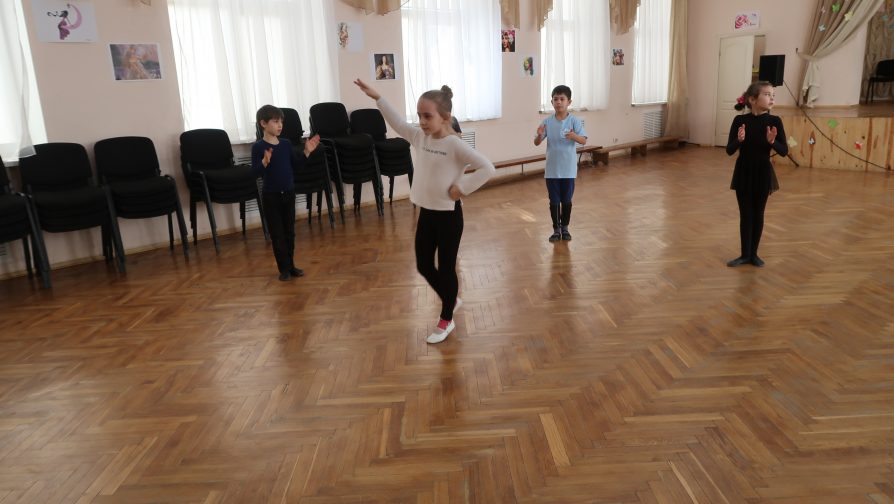
“It is important for me to keep our traditions and languages alive. We are waiting when the Crimean occupation will be over and all these families will be able to come back home,” says Anife.
Though it is unknown when this day will come, Anife refuses to give up hope, finding creative ways to keep the spirit of her heritage alive. Her pride represents leadership, and with her guidance the Tatar community became a team. With their efforts, their culture will live on to future generations regardless of any difficulty.
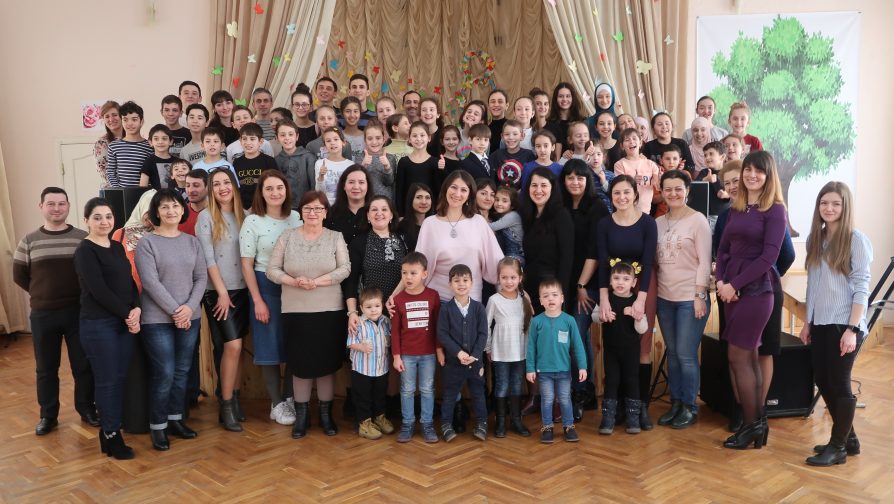
Community-based approach a core to protection and transcends to UNHCR’s work with displaced population. UNHCR Ukraine protection strategy is built on strengthening community based protection mechanisms initiated by the IDPs and host community to identify and respond to protection needs and create coping mechanisms.
UNHCR Ukraine community based protection activities included regular dialogue and communication with IDPs through protection monitoring and Participatory Assessment and Support to small community initiatives. The project was aimed at enhancing capacity of the NGO consisted of initiative of Crimean Tatar IDPs to provide activities for Crimean Tatar children aimed at maintaining their ethnic identity and cultural traditions on the mainland of Ukraine. In 2015 and 2016 UNHCR provided technical assistance (microphones and audio system) and 10 stage outfits for children to the NGO for conduction of classes of Crimean Tatar music, vocal and dancing for the children.
Page 26 of 35
-

Modern books about refugees you need to know about
23 Apr 2020For World Book Day, we wanted to introduce you to books written by refugee authors or books about refugees
-
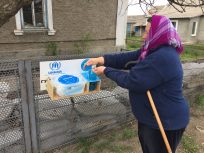
Live blog: UNHCR Ukraine Response to the COVID-19 pandemic
22 Apr 2020These are some of the ways that UNHCR staff, people forced to flee and partners in Ukraine are taking action to stay smart, stay safe and stay kind.
-
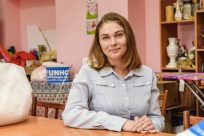
The different faces (and masks) of protection in eastern Ukraine: How a community-based initiative is fighting the spread of COVID-19
22 Apr 2020Community members from Chasiv Yar village started sewing masks for their families, but soon realized they could save lives
-
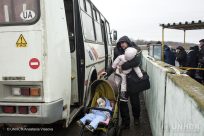
As COVID-19 pandemic continues, forcibly displaced children need more support than ever
21 Apr 2020Joint statement by Henrietta Fore, UNICEF Executive Director, and Filippo Grandi, UN High Commissioner for Refugees
-

The Council of Europe and UNHCR support Member States in bringing refugee health workers into the COVID-19 response
15 Apr 2020Europe can benefit from the support refugee health professionals can provide to national health systems at this critical juncture.
-

Children’s storybook released to help children and young people cope with COVID-19
15 Apr 2020A new storybook that aims to help children understand and come to terms with COVID-19 has been produced by a collaboration of more than 50 organizations working in the humanitarian sector.
-
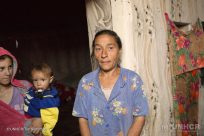
Many Roma families are particularly vulnerable in the current crisis of COVID-19
8 Apr 2020Today is International Roma Day
-
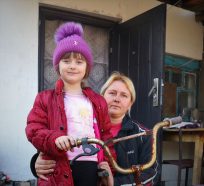
Celebrating life on mine risk awareness day: Story of five-year-old Olenka
3 Apr 2020The International Mine Awareness Day draws the world’s attention to the terrible impact of armed conflict on the civilian population
-

A woman wounded by a grenade explosion heals and begins to support vulnerable populations as a social worker
1 Apr 2020Severe mine contamination caused by the armed conflict in the east of Ukraine continues to jeopardize lives of civilians
-
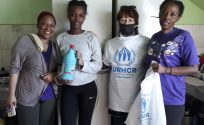
The rights and health of refugees, migrants and stateless must be protected in COVID-19 response
1 Apr 2020OHCHR, IOM, UNHCR and WHO joint press release
